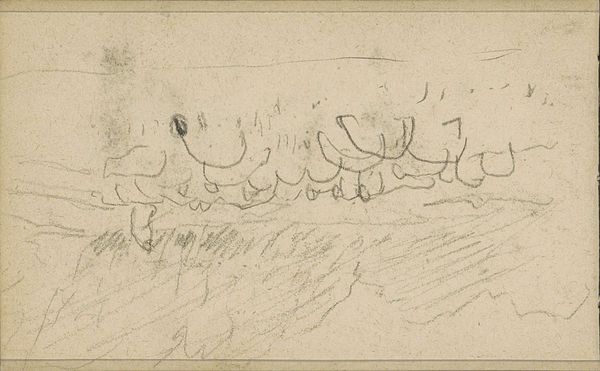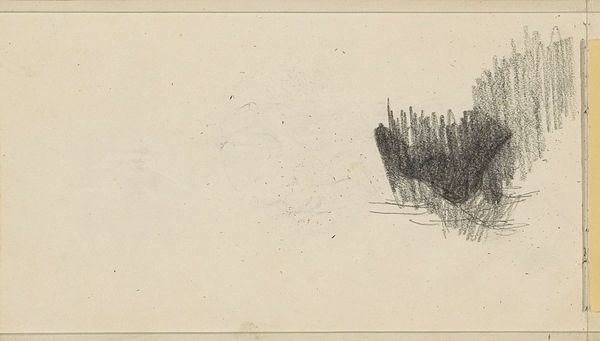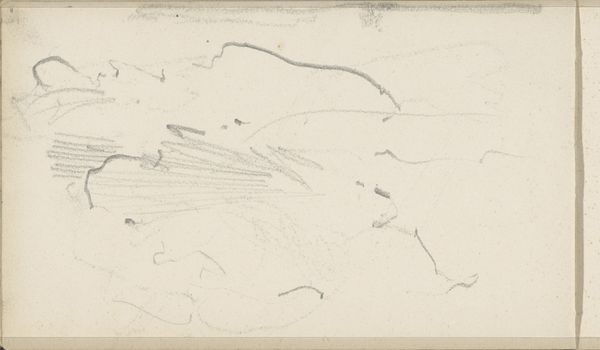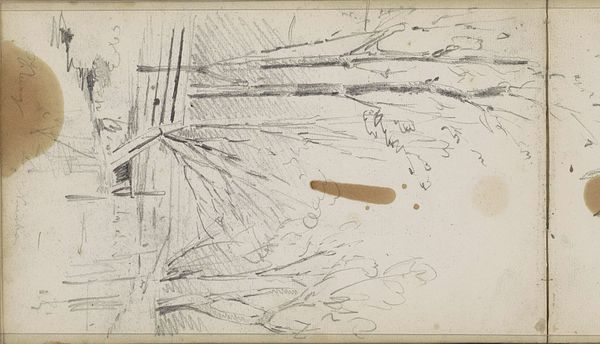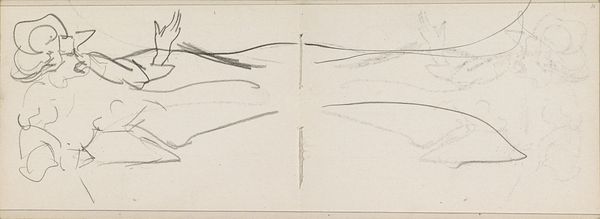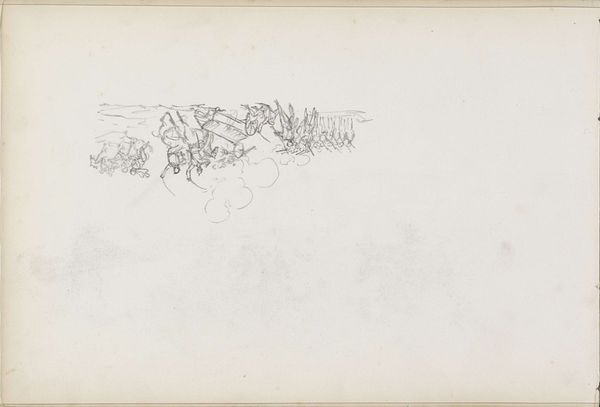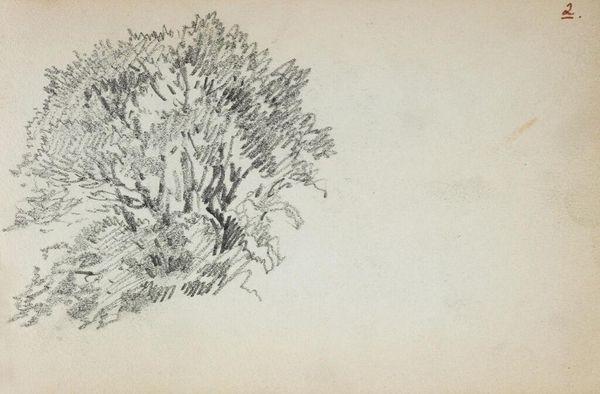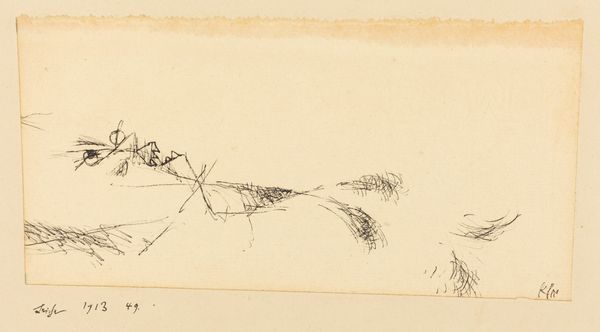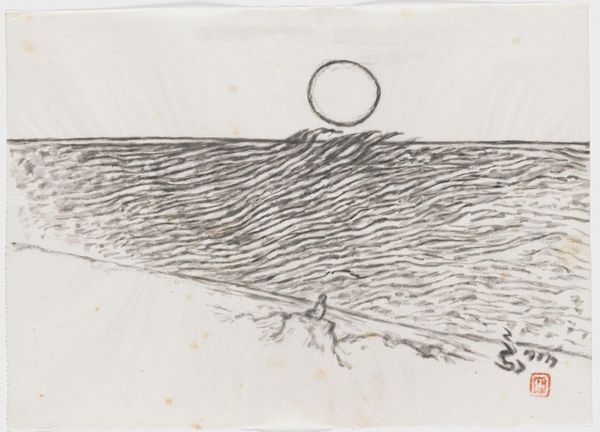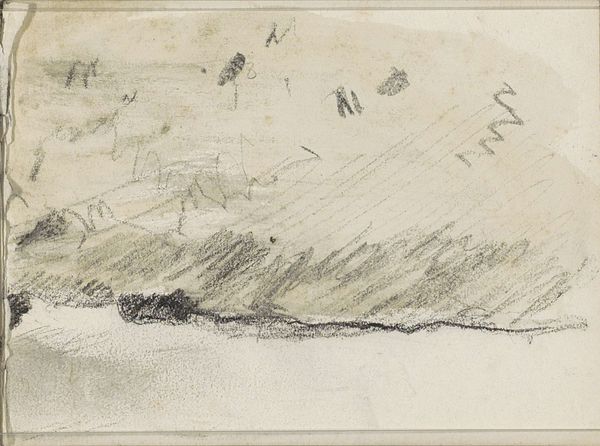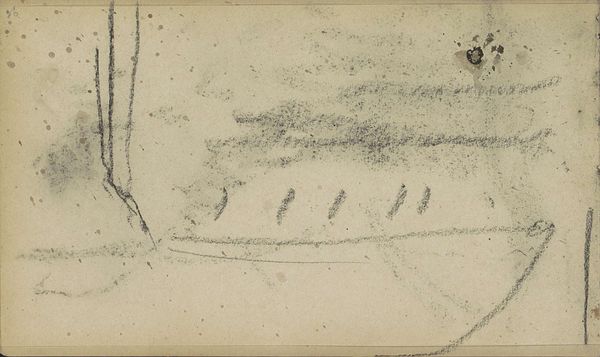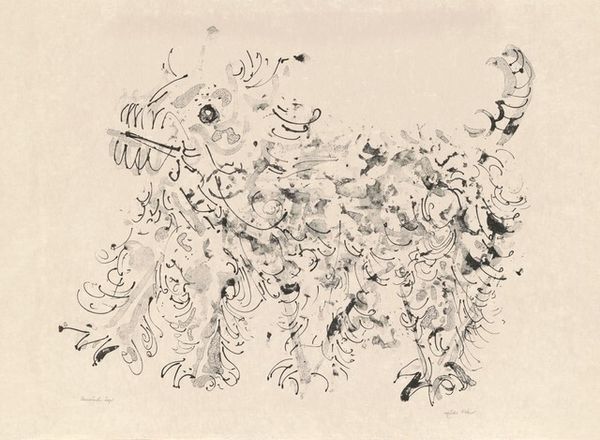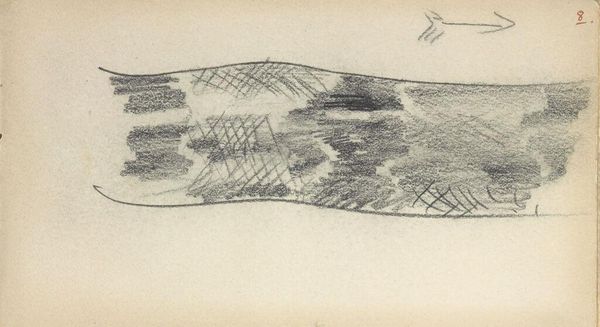
Onderdeel van het menselijk lichaam met een afwijking 1836 - 1912
0:00
0:00
isaacweissenbruch
Rijksmuseum
drawing, pencil, graphite
#
drawing
#
organic
#
pencil
#
abstraction
#
line
#
graphite
#
genre-painting
Dimensions: height 82 mm, width 128 mm
Copyright: Rijks Museum: Open Domain
Editor: This graphite drawing on paper, "Onderdeel van het menselijk lichaam met een afwijking," roughly translates to "Part of the human body with a deviation," and was created by Isaac Weissenbruch sometime between 1836 and 1912. I'm struck by the repetitive marks and almost microscopic quality. How should we interpret it? Curator: The drawing invites us to consider the politics of representation, particularly concerning the body and its perceived "deviations." Considering the historical context, during this period the medical field's pathologizing of difference intersected with broader social anxieties about normality and marginality. How might Weissenbruch's work be seen as a commentary on the medical gaze? Editor: I never would have thought about that! So, it's not just an anatomical study, but a social statement as well? Curator: Exactly! Look at the style, almost clinical in its precision, yet unsettling in its abstraction. It pushes us to question what it means to visually categorize and understand the human form. This makes one consider the ethical implications surrounding representation. It is very relevant to feminist discourse too. What’s your take? Editor: That is definitely there in the repetitive quality and pattern. And it anticipates some modernist abstraction as well. Thinking about social norms and bodily representation has made me reconsider what I originally thought. Curator: Precisely. The drawing functions as an archive, raising questions regarding power dynamics, the otherness, and the politics involved. It highlights social power at the time in connection with social power today.
Comments
No comments
Be the first to comment and join the conversation on the ultimate creative platform.
